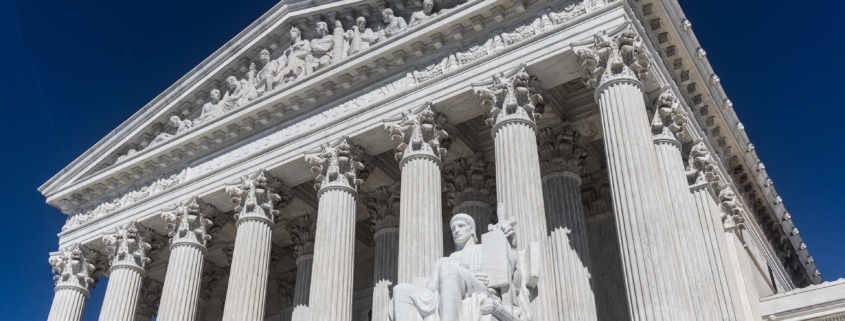Supreme Court Rulings Already Impacting Catholic Schools
This month, even before the nomination of Amy Coney Barrett to the Supreme Court, the Court’s importance to Catholics was made apparent — and Catholic educators especially should take notice.
The Supreme Court’s summer rulings are now being tested in Indianapolis, where a teacher who was rightly dismissed from Cathedral High School because he entered into a same-sex civil marriage has filed a federal discrimination complaint. His case will likely rest upon the Court’s Bostock ruling in June, which forbids employers from considering homosexuality or transgender identity in employment decisions.
The same teacher has also sued the Archdiocese of Indianapolis, claiming that Archbishop Charles Thompson improperly interfered with Cathedral’s personnel decisions by requiring Catholic schools to uphold moral standards for teachers. The policy complies with the Church’s Canon 806:
“The diocesan bishop has the right to watch over and visit the Catholic schools in his territory, even those which members of religious institutes have founded or direct. He also issues prescripts which pertain to the general regulation of Catholic schools….”
Thankfully, Archbishop Thompson has an ally in the Trump administration. On September 8, the U.S. Justice Department filed a brief in Indiana court supporting dismissal of the lawsuit by Cathedral’s former employee. The brief relies in part on the Supreme Court’s July ruling in Our Lady of Guadalupe School, which upheld the “ministerial exception” for Catholic schools. The exception prevents discrimination lawsuits against Catholic schools, when they are brought by employees who teach the Catholic faith.
Moreover, the Justice Department’s brief makes a First Amendment case for the right of Catholic schools to choose employees according to their Catholic mission. This effectively calls for a religious exemption to the Supreme Court’s Bostock ruling.
“Our ancestors arrived on our shores to establish a country where the people would be secure to practice their faiths and to gather freely with their religious communities,” said Assistant Attorney General Eric Dreiband for the Civil Rights Division when filing the Indiana brief. “To that end, the First Amendment to the United States Constitution protects the right of religious institutions and people to decide what their beliefs are, to associate with others who share their beliefs, and to determine who will teach the faithful in their religious schools.”
Also this month, the U.S. Education Department issued a final rule to protect religious freedom in higher education. In addition to enforcing free speech and the rights of religious groups at public universities, the rule clarifies that a college with a clear religious mission is exempt from Title IX, the federal law banning sex discrimination in education. This is especially important in helping protect Catholic schools and colleges from the Bostock ruling, which directly concerns only Title VII regarding employment discrimination, but is expected quickly to impact interpretations of Title IX.
“Federal law provides that Title IX ‘shall not apply’ to educational institutions that are ‘controlled by a religious organization,’ to the extent that application of Title IX would not be consistent with the religious tenets of such organization,” the Education Department explained. But it has never been clear how courts should determine whether a school is “controlled by a religious organization.”
The final rule includes a “non-exhaustive list” of common factors that a school or college may rely upon for Title IX exemption. These include an “institutional mission” statement that “includes, refers to, or is predicated upon religious tenets, beliefs, or teachings,” which should cover schools and colleges that are openly faithful to the Catholic magisterium.
All of this is good news for Catholic educators, so long as the federal government remains supportive of religious freedom. We do not yet know the outcome of these interventions. But it is clear that Supreme Court rulings have serious consequences, and the direction of the Court is of great importance to Catholics.
Catholic educators need to do everything possible to protect against lawsuits, and that begins with a clear and consistent Catholic identity. The ability to maintain faithful Catholic education depends on a vigorous defense of religious freedom. Schools and colleges need to be prepared to go to court and demonstrate their uncompromised commitment to their Catholic mission.
This article first appeared at the National Catholic Register.

